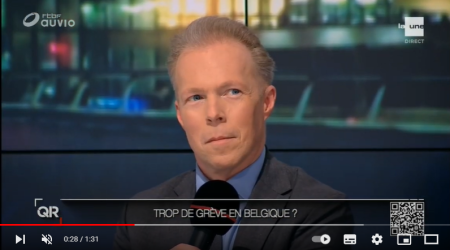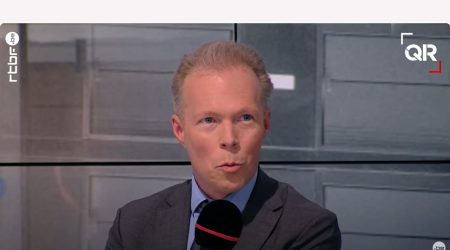Interview with Mr Delmarcelle on CanalZ - The issue of social security contributions due by Ryanair and ongoing investigations
Posted the 11 October 2023CanalZ - Report by Noélie Detry
On Friday 6 October 2023, Mister Delmarcelle was interviewed on CanalZ about the ongoing investigations into Ryanair's social security contributions. The well-known low-cost airline is currently in the spotlight because of questions raised about its compliance with Belgian social rules. According to Labour Minister Pierre-Yves Dermagne (PS), "73 cases have been opened, including 36 in the last two years".
Speaking on CanalZ, Mister Delmarcelle detailed the two main issues associated with this case:
Unpaid social security contributions
Ryanair employees are declared in Ireland, where tax conditions are more favourable than in Belgium, raising the question of which country should collect these contributions. As a reminder, in Belgium the contribution rate is between 28% and 35%, while in Ireland it is 12% for employees and 16% for the self-employed. Although Ryanair is taking advantage of a legal grey area and competition between States, the company is aware of the risks. In 2014, it was fined €4.5 million in France.
Employee status
Another major issue is the problem of bogus self-employed pilots. The company declares its pilots as self-employed when in fact they operate as employees. Self-employed status is more advantageous in terms of social security contributions.
To resolve these concerns, Mister Delmarcelle stressed the need for a court order forcing Ryanair to pay the outstanding contributions. Such a decision would not only force the company to meet its obligations, but could also pave the way for criminal sanctions. In the event of proven fraud, fines could reach up to €4,000 per employee concerned.
Related articles

QR the debate: Should political mandates and salaries be combined or not? Relive our debate

Consequences for Investors - Strike Law (QR "Le Débat" - RTBF)
